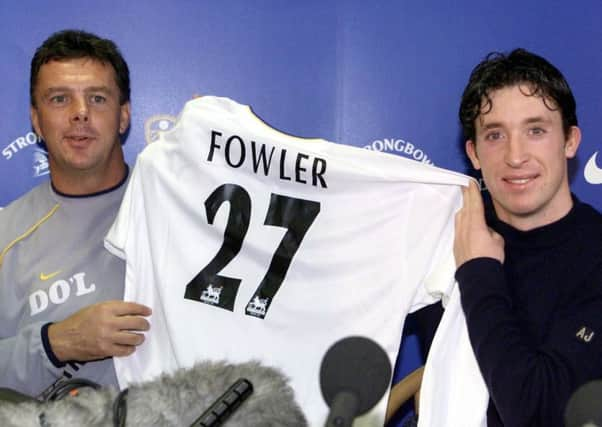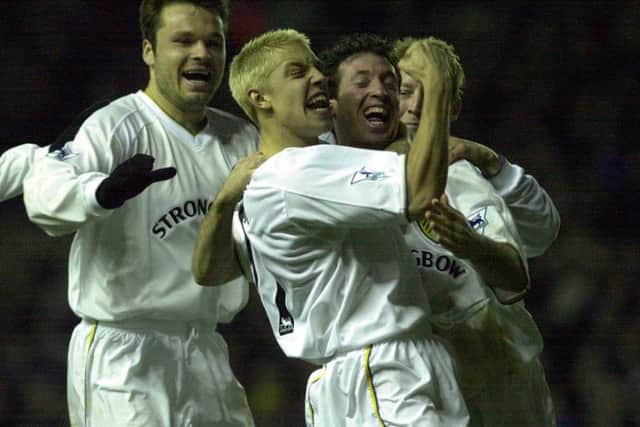Leeds United Nostalgia: Fowler's Elland Road move proved a false dawn


There had been big signings before, of course, huge and exciting signings, but when a 26-year-old Robbie Fowler was unveiled as a Leeds player 16 years ago this week, the message was made clear; Leeds United can win the Premier League.
He arrived in a whirlwind. Out of favour at his beloved Liverpool, the forward had been linked with the likes of Lazio, Chelsea and Arsenal in the months before the move, but Leeds’ interest was short and impactful – no longer had they tabled a bid than it was negotiated and accepted.
Advertisement
Hide AdAdvertisement
Hide AdThe audacity of it was what so excited Leeds fans. Fowler had 120 career goals to his name, was an England international and was widely regarded as one of the greatest natural finishers in the history of the national game, but even his most ardent supporters would argue that he arrived at Leeds at his best.


But they had taken a 26-year-old Robbie Fowler. The Robbie Fowler who was already regarded as a Premier League great.
Leeds, billed as title contenders at the start of the season, had scored only 16 goals in 13 games. £11m was the fee, and Leeds had even won at that, the fee closer to the opening bid of £10m than the Reds’ valuation of £15m.
This was about as big a statement of intent as the club could manage right there, right then.
Advertisement
Hide AdAdvertisement
Hide Ad“One thing I shall predict is that I can win the league here at Elland Road this season”, he said at his opening press call. Win the league they didn’t, of course, despite Fowler’s return of 12 goals in 22 Leeds starts that season.


Their final position of fifth was good enough to secure UEFA Cup qualification for the following season, but was not enough to take them back into the diamond-encrusted Champions League, a financial hit that would go on to define an Elland Road generation.
That dozen goals included a classy Boxing Day hat-trick at Bolton that would briefly reignite Leeds’ title charge, a day that would prove to be the peak of his Leeds career. Returning from a 2002 World Cup in which he made his final England appearance, Fowler sustained a hip injury in pre-season and was forced onto the sidelines until Christmas.
He returned to find that many of his team-mates had been sold off as the club’s financial meltdown escalated. Leeds finished 15th in a turbulent season and it was clear that as one of their top earners, his time at the club was coming to an end.
Advertisement
Hide AdAdvertisement
Hide AdA protracted contract negotiation with Manchester City followed, with Fowler keen to stay at a club he felt he had built a connection with. The transfer was pushed through after a chance conversation with one of the club’s directors that serves as a microcosm of the way the club was run at the time.
“I told him I’ve made up my mind, I want to stay here, I like it here,” Fowler said at the time. He said: ‘Take the money and run son, this club’s going under’.”
In another time, in other circumstances, Robbie Fowler could have been one of the great Leeds United players of all-time. As with so many aspects in that cluttered segment of the club’s history, it’s all now just a case of what might have been.